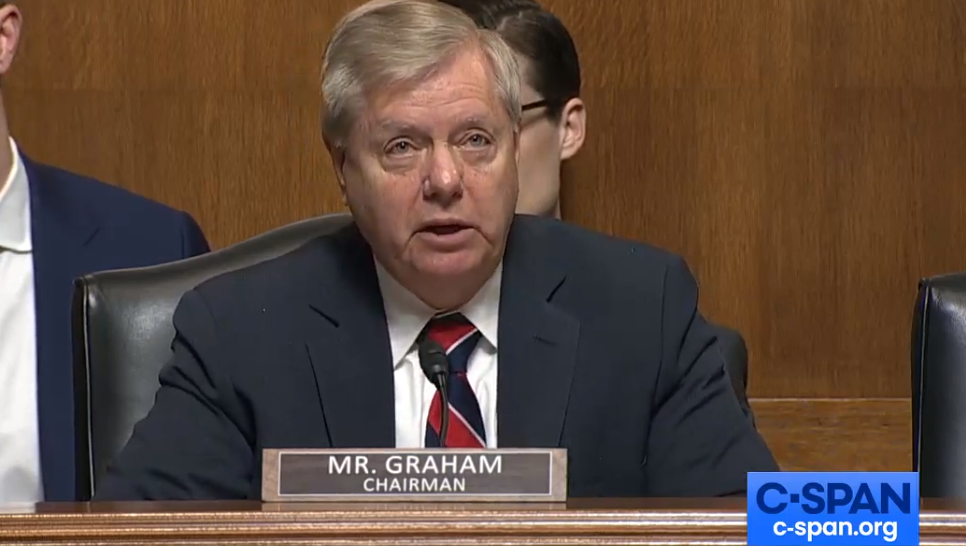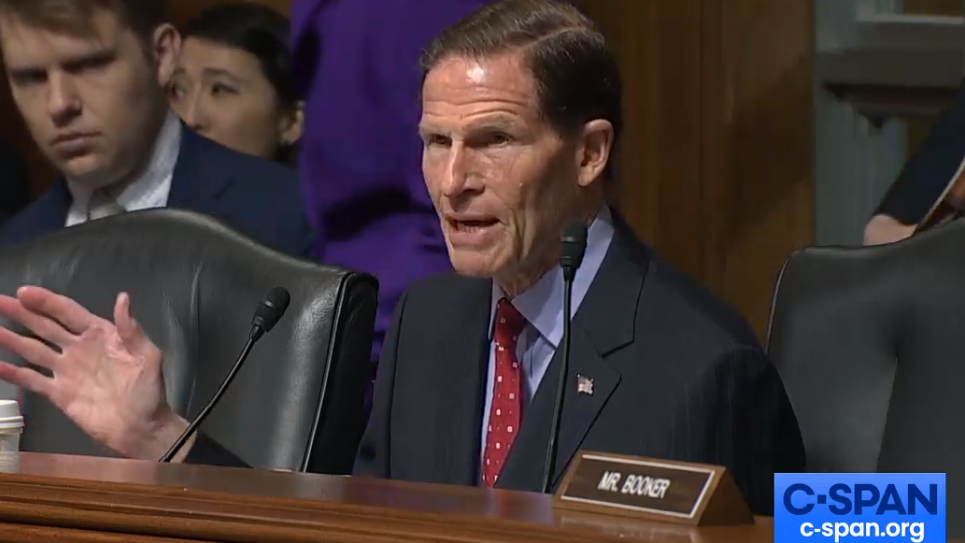Senate Mulls EARN IT Act Section 230 Limits
The smarter way to stay on top of the multichannel video marketplace. Sign up below.
You are now subscribed
Your newsletter sign-up was successful
The Senate Judiciary Committee weighed into the issue Big Tech's accountability for online child exploitation Wednesday (March 10) and both sides of the aisle made it clear tech companies needed to do more to help in that effort.
The National Center for Missing and Exploited Children said it had received some 17 million complaints about such material in 2019.
The hearing was on the Eliminating Abusive and Rampant Neglect of Interactive Technologies [EARN IT] Act."
Related: EARN IT Act Debut Earns Plenty of Input
The bill, which was introduced by Sen. Lindsey Graham (R-S.C.), would amend Section 230 to say that the section's immunity for online platforms from civil liability for third-party content does not extend to child exploitation, meaning a Facebook or Twitter could be held liable for posts that illegally exploit children.

It would also also establish a National Commission on Online Child Exploitation Prevention to establish best practices for preventing such exploitation.
An emotional and resolute Graham said companies needed to be finding and taking down sexually explicit that adults are posting and "put the bastards in jail."
The smarter way to stay on top of the multichannel video marketplace. Sign up below.
He said he was tired of begging and pleading and talking and that it was time to start voting.
Graham said all the bill was doing was coming up with a voluntary system of best practices for preventing child exploitation online. If companies comply, they are home free, if not the Section 230 protection from civil liability for that failure goes away.
He pointed out that there were 10 bipartisan co-sponsors of the bill and suggested if they voted on the bill now he would get a lot of votes. He said he recognized the complexity of the issue and the balancing of speech protections and that he was not out to put anyone out of business or stop innovation. But he also said that they "were not letting this abuse go forward in the name of any freedom."
Graham made a point of praising Facebook for its efforts to identify and scrub exploitaive content, saying it was doing a "damn good job."
Sen. Richard Blumenthal (D-Conn.), who worked with Graham on the bill, pointed to the 10 bipartisan co-sponsors and said he hoped there would be more once more people understood what was at stake.

He said anyone who had seen the online images of child exploitation had to be repulsed by the vile, gut-wrenching, unspeakable betrayal of basic humanity, a betrayal that haunts survivors because they infest the 'net and never go away, a "crime in perpetuity," as Catholic University law professor Mary Leary put it at the hearing.
Blumenthal said Section 230 provides a unique, near absolute immunity from legal consequences for "certain companies and activities."
He said they were not proposing to eliminate that protection for companies that earn it (thus the EARN IT Act name) by taking responsible steps to stop the exploitation of kids. He said their goal was to crack down on child abuse, enlisting companies in the effort and making sure they follow best practices.
Blumenthal said the bill was not about ending encryption, which could co-exist with protecting children.
It was shocking that some of the largest tech companies had failed to meet their social and moral obligation to crack down on child exploitation, said Blumenthal.
He called out Amazon for providing only eight reports of suspected child abuse material on its platform, only a fraction of what the National Center for Missing & Exploited Children had identified. Graham seconded that, noting that Facebook had provided 15.8 milion reports compared to Amazon's eight.
Blumenthal said that Amazon's response that, because it isn't Facebook it does not have a child sexual exploitation problem was "indefensible and insulting."
Blumenthal warned that Section 230 was a gift, but one that needed to be earned and deserved, and "would not continue if these companies don't follow basic moral obligations.
Ms. Elizabeth Banker, general counsel for the Internet Association, which has issues with the bill, took some not-to-friendly fire, though the legislators made clear they knew she was just the messenger.
Blumenthal said, angrily, that her message back to her tech clients should be that tech companies can be part of the solution or they are part of the problem and they will lose all of Section 230. He said they would "see a whirlwind" of opposition to Section 230 "across the board."
But Blumenthal also said he did not want to paint all tech companies with a broad brush and pointed out that one of IA's (40-plus) members, Match, was testifying at the hearing in support of the bill.
Contributing editor John Eggerton has been an editor and/or writer on media regulation, legislation and policy for over four decades, including covering the FCC, FTC, Congress, the major media trade associations, and the federal courts. In addition to Multichannel News and Broadcasting + Cable, his work has appeared in Radio World, TV Technology, TV Fax, This Week in Consumer Electronics, Variety and the Encyclopedia Britannica.

